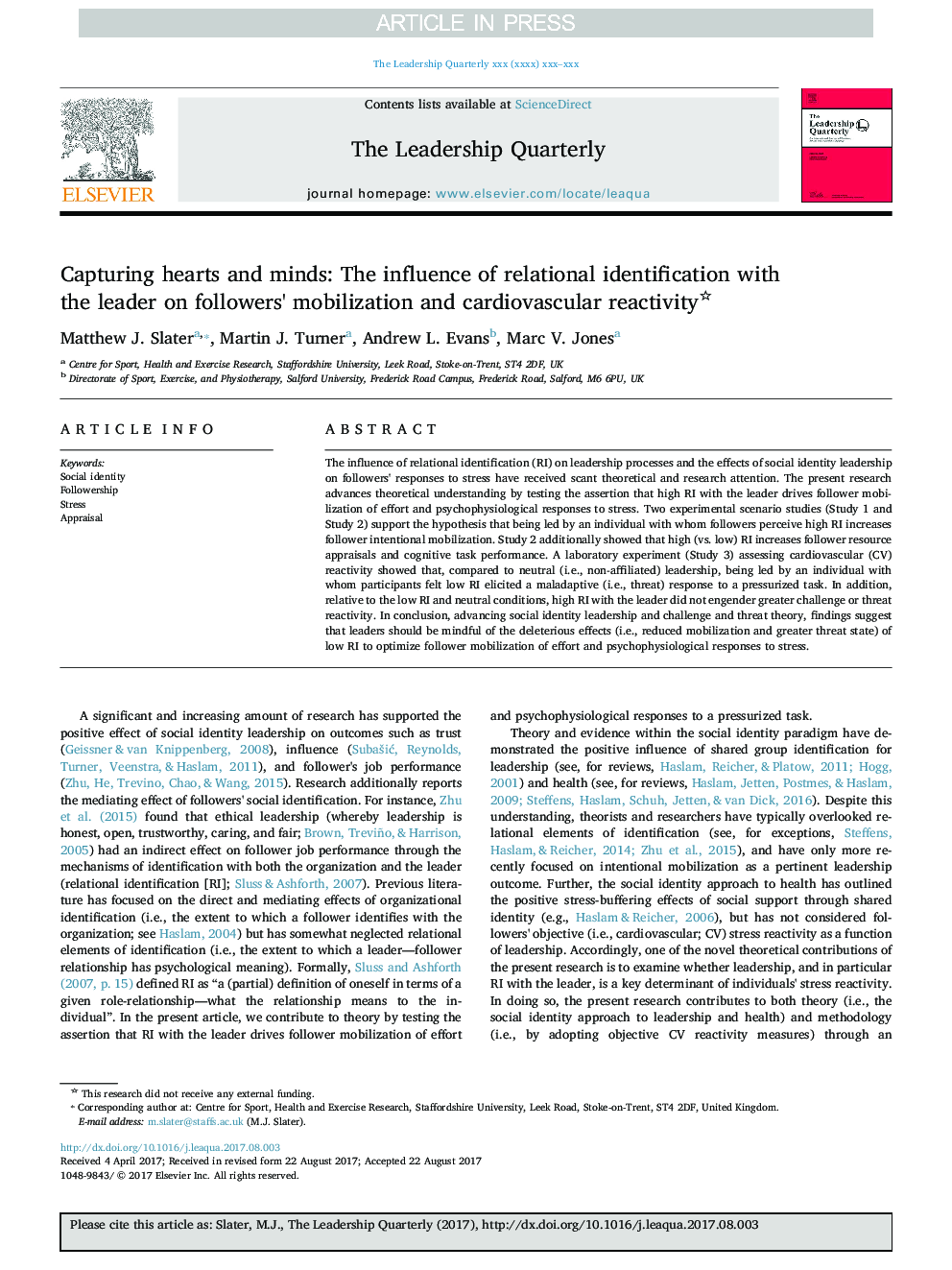| Article ID | Journal | Published Year | Pages | File Type |
|---|---|---|---|---|
| 7247772 | The Leadership Quarterly | 2018 | 10 Pages |
Abstract
The influence of relational identification (RI) on leadership processes and the effects of social identity leadership on followers' responses to stress have received scant theoretical and research attention. The present research advances theoretical understanding by testing the assertion that high RI with the leader drives follower mobilization of effort and psychophysiological responses to stress. Two experimental scenario studies (Study 1 and Study 2) support the hypothesis that being led by an individual with whom followers perceive high RI increases follower intentional mobilization. Study 2 additionally showed that high (vs. low) RI increases follower resource appraisals and cognitive task performance. A laboratory experiment (Study 3) assessing cardiovascular (CV) reactivity showed that, compared to neutral (i.e., non-affiliated) leadership, being led by an individual with whom participants felt low RI elicited a maladaptive (i.e., threat) response to a pressurized task. In addition, relative to the low RI and neutral conditions, high RI with the leader did not engender greater challenge or threat reactivity. In conclusion, advancing social identity leadership and challenge and threat theory, findings suggest that leaders should be mindful of the deleterious effects (i.e., reduced mobilization and greater threat state) of low RI to optimize follower mobilization of effort and psychophysiological responses to stress.
Related Topics
Social Sciences and Humanities
Business, Management and Accounting
Business and International Management
Authors
Matthew J. Slater, Martin J. Turner, Andrew L. Evans, Marc V. Jones,
